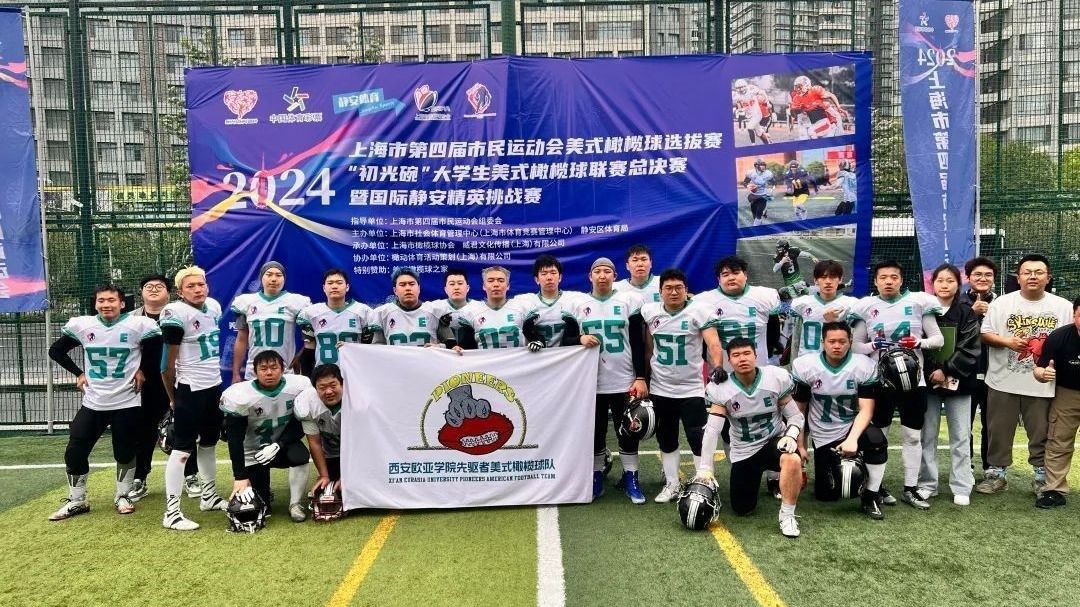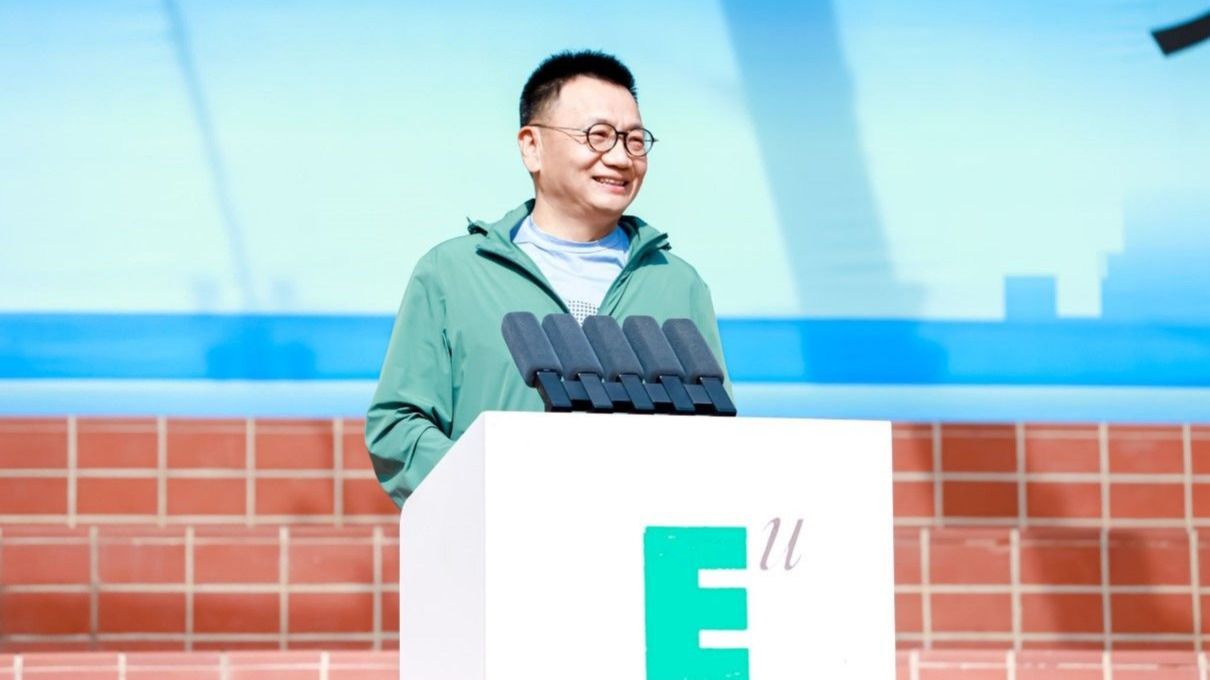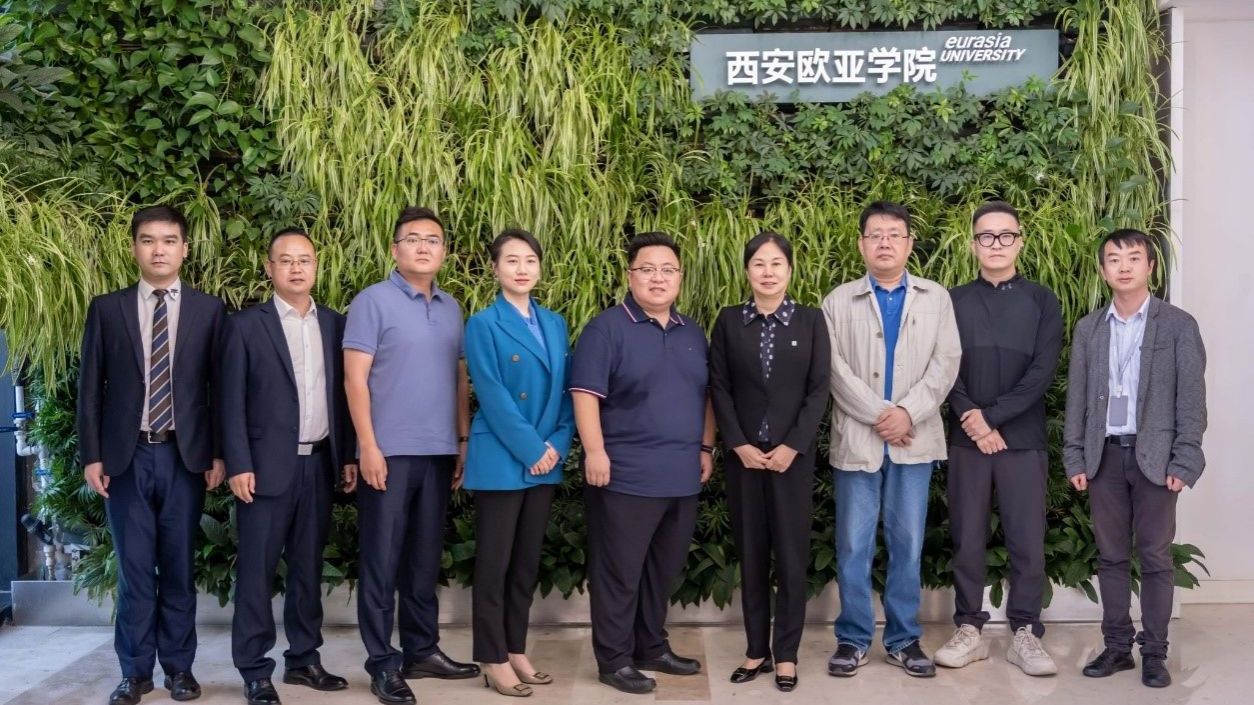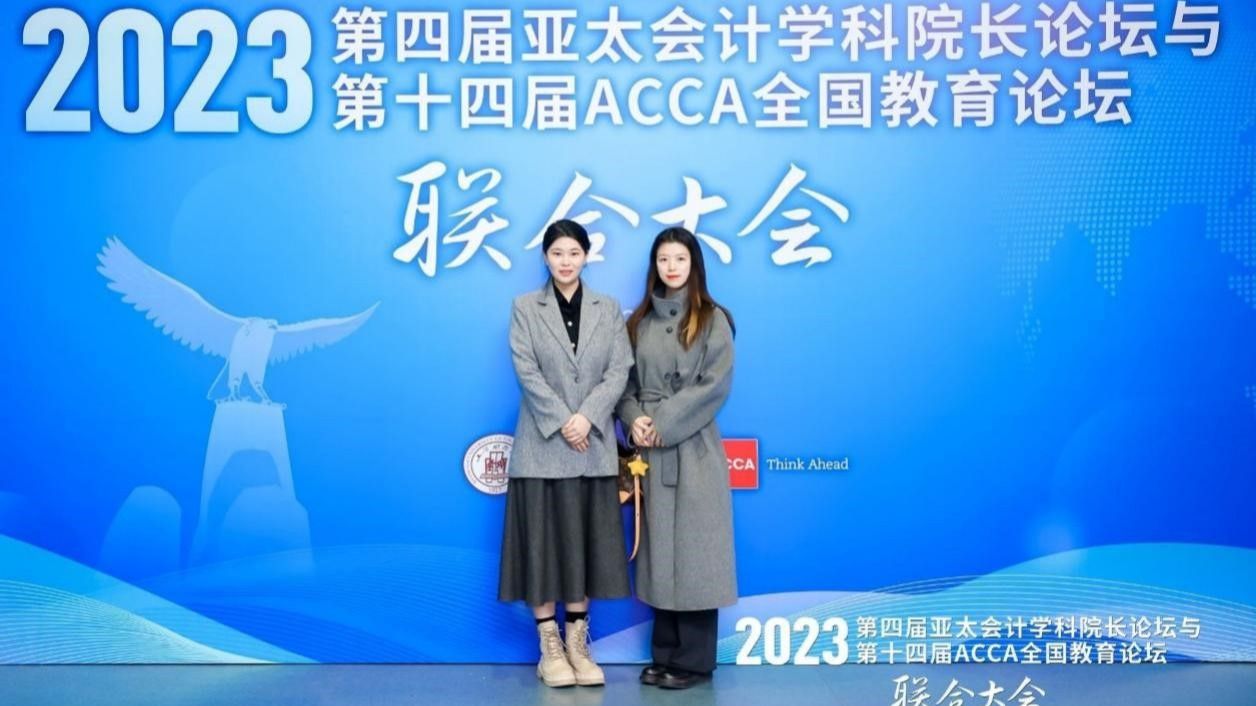At present, AI technology is flourishing, and the wave of AI sweeps across the world. Education is also revitalized in this technological revolution, and unprecedented integrated innovation is underway. In this round of revolutionary changes involving all sectors of society, how can AI help the digital transformation of education and provide more possibilities for educators? On March 16, the Seminar on AI Boosting Application-oriented Talent Cultivation of Xi'an Eurasia University was held in the Students Activity Center. Many experts, scholars, entrepreneurs and investors in the field of AI in China gathered in Xi'an Eurasia University to discuss diversified paths for AI-enabled university education innovation, provide direction reference for the reform of application-oriented talent cultivation, and envision an imaginary future of AI + education in new technologies and ideas.
Yu Yingzheng, Founder of Future Ivy Education Technology (Beijing) Co., Ltd., Yue Luping, practitioner and researcher in the cultural creative industry and contemporary artist, Zhang Zhi, Associate Professor of Wuhan Institute of Technology and Founder of Qiuye PPT, Professor Liu Qian, Executive Vice Dean of the School of Digital Media of Beijing Film Academy, and Zhou Yuming, Chairman of Shanghai Qiandao Information Technology Co., Ltd., made wonderful speeches, sharing the latest research results, market applications and future trends in the AI field. Professor Sun Jianrong, Vice President of Xi'an Eurasia University, Hu Hongfei, a teacher from the School of Information Engineering, Wang Quankai, a teacher from the EAaD School, the virtual digital human of the School of Culture & Media, and Li Shudong, Data Engineer of the Graphic Information Center, shared program cases and teaching thinking on course design, talent cultivation and digital transformation in the AI era and discussed the application and challenges of AI in the digital transformation of education and teaching.
Speech 1: A New Species of University in the AI Era
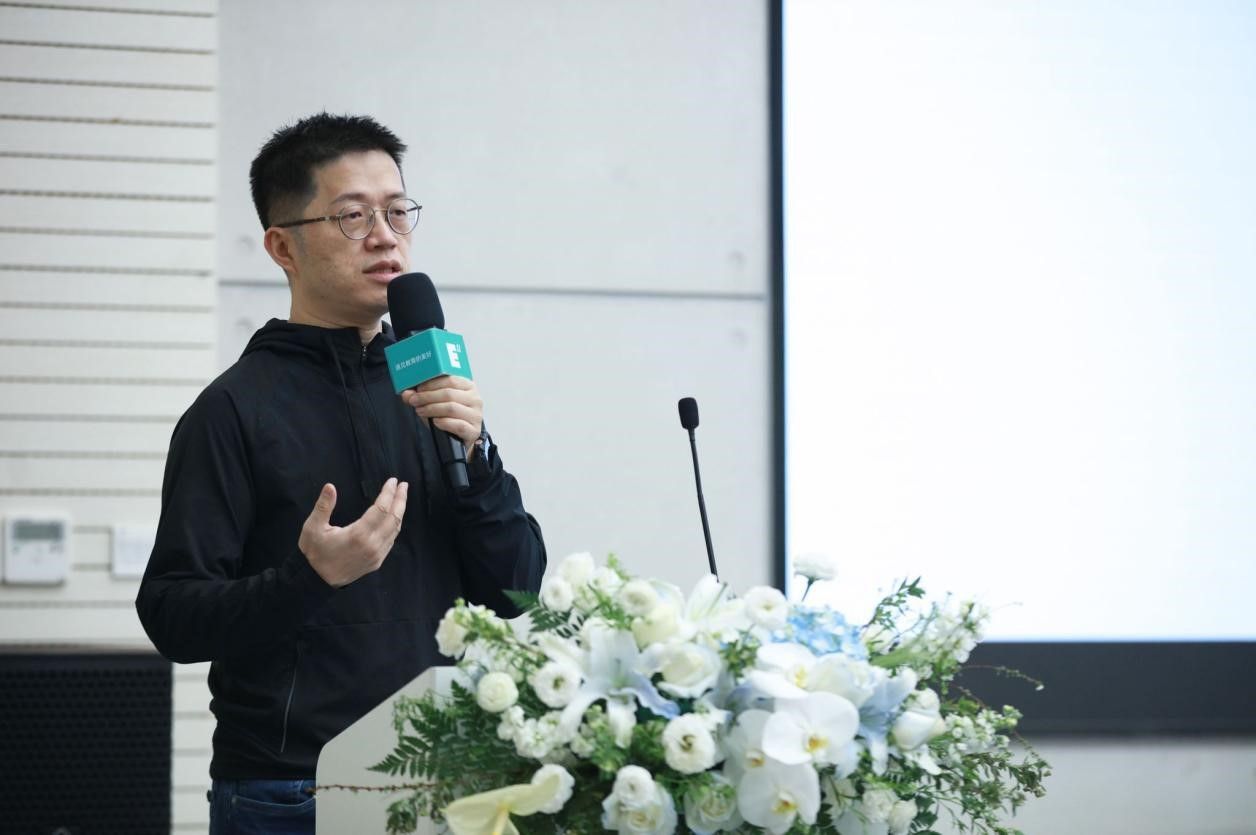
"We boldly embrace AI, which is an opportunity of the times."
"Why do OpenAI engineers read 'The Bitter Lesson'?" "How does Musk design a 'new school'?" "How do we build a world-famous university in 30 years?" Yu Yingzheng, Founder of Future Ivy Education Technology (Beijing) Co., Ltd., discussed the huge shift in scientific paradigm in the AI era, how to reshape schools to make learning more practice-oriented and interest-driven, and how to create a new species of university with exponential thinking through three interesting stories.
Yu Yingzheng believes that the essence of education is to train neural networks. Education in the AI era pays more attention to the relationship of human beings, society and machine neural networks and how to amplify human intelligence through close man-machine cooperation, so as to make everyone more creative and imaginative.
Taking the rapid development of Carnegie Mellon University featuring the "All in Computer" model into the world's top university as an example, Yu Yingzheng pointed out that exponential thinking can be used to create a new species of university from three action levels: practical application, discipline innovation and exponential thinking. The first is the application of AI in administrative management, teaching methods and enrollment consultation. The second is to develop new AI-based disciplines or explore the combination of existing disciplines with AI. The third is to redefine a new species of university.
Yu Yingzheng conceived the first "All in AI" university model: From carrying out program-oriented teaching designed to solve practical problems based on the concept of "end to end"; carrying out general education with the help of the large model technology to train students' neural networks and cultivate interdisciplinary thinking and lifelong learning ability; to giving full play to the advantages of carbon-based life with human emotion, insight and warmth to attract more people from society by shaping a vibrant and innovative university community through culture. All these will meet the needs of the AI era and provide new possibilities for the development of universities.
Speech 2: How Do We Become High-quality Newcomers in the AI Era?—New Globalization, New Intelligence, New Industry-Education and New Discipline
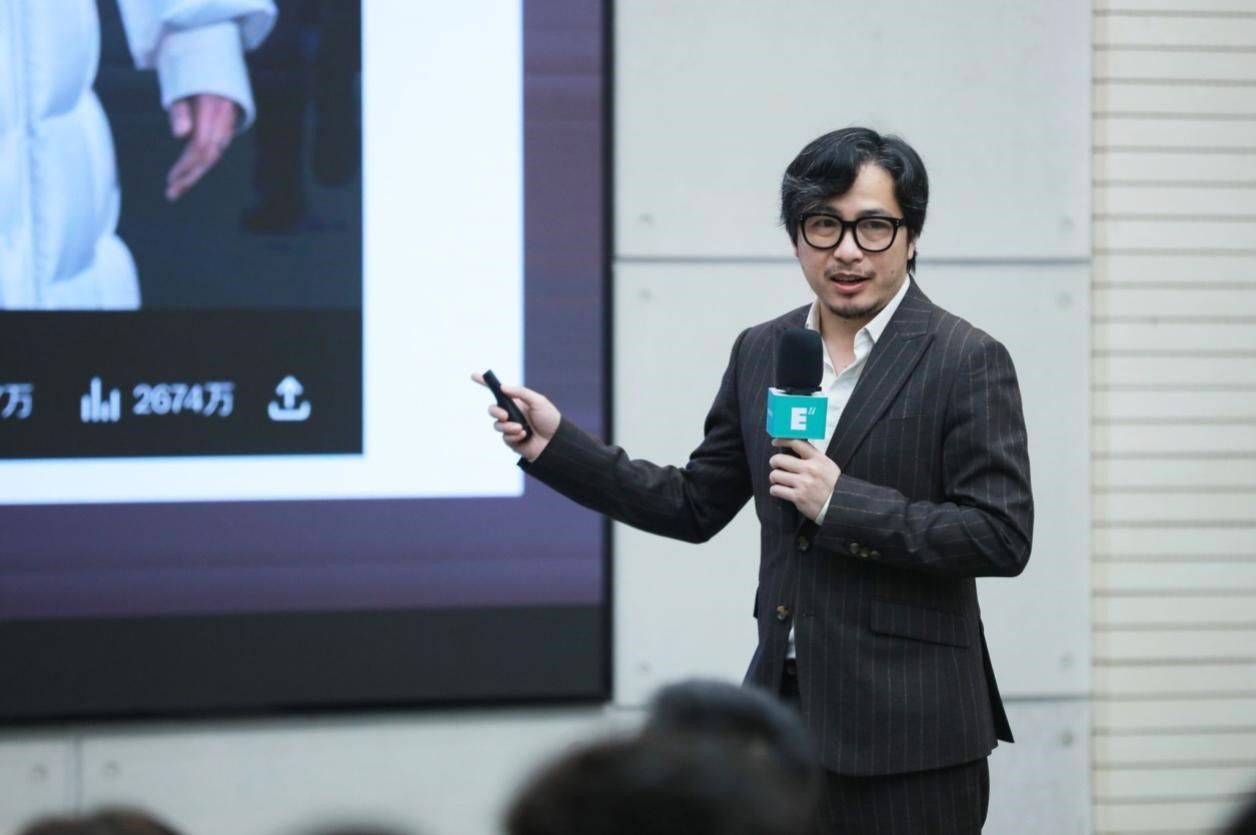
"Each student needs to develop new abilities and become a high-quality newcomer."
Yue Luping, practitioner and researcher in the cultural creative industry and contemporary artist, first demonstrated a series of videos generated based on iFlytek Spark, OpenAI Sora, Pika, Stable Video and other platforms. He defined such AI-generated content (AIGC) as "new violence aesthetics". "This computational aesthetic is very different from art and culture since the Renaissance. It has revolutionized our cognition and exerted a leap-forward influence on educational thinking. It's more like a dimensionality-reduction blow, which upgrades our thinking dimensions," said Yue Luping.
AI is changing people's ways of creation, education and interdisciplinary cooperation, giving birth to educational reforms in new engineering, liberal arts, agriculture and medicine, so as to help enhance the hard power and cultural soft power and boost ecological growth and national health. Yue Luping pointed out that many majors of Xi'an Eurasia University are on the cusp of this wave of AI revolution and will enjoy all the dividends following it. Recently, Yue Luping is building a new species laboratory with partners such as Xinhua News Agency and China News Science and Technology Association, together with 60 tutors and many universities. "This is not only an innovation platform that gathers engines and imagination, but also a platform that aims to cultivate future innovators to jointly meet the new challenges and opportunities of the AI era," said Yue Luping.
Standing at the intersection of humanities and science and technology, Yue Luping believes that every student should develop new abilities. High-quality newcomers in the future should have three abilities, including inclusiveness in the face of new things and diversified cultures, computational thinking necessary for the digital world, and rapid adaptability to rapid industrial iteration and shortened knowledge half-life. At the same time, the university should redesign the education and teaching system of majors, courses, textbooks, technologies, practices, teachers, etc., optimize, upgrade or build new majors, change the structure of professional colleges, create high-level, innovative and challenging courses, and promote the construction of an industry-education integration platform for collaborative education.
Speech 3: AI-enabled Teaching Innovation of University Teachers
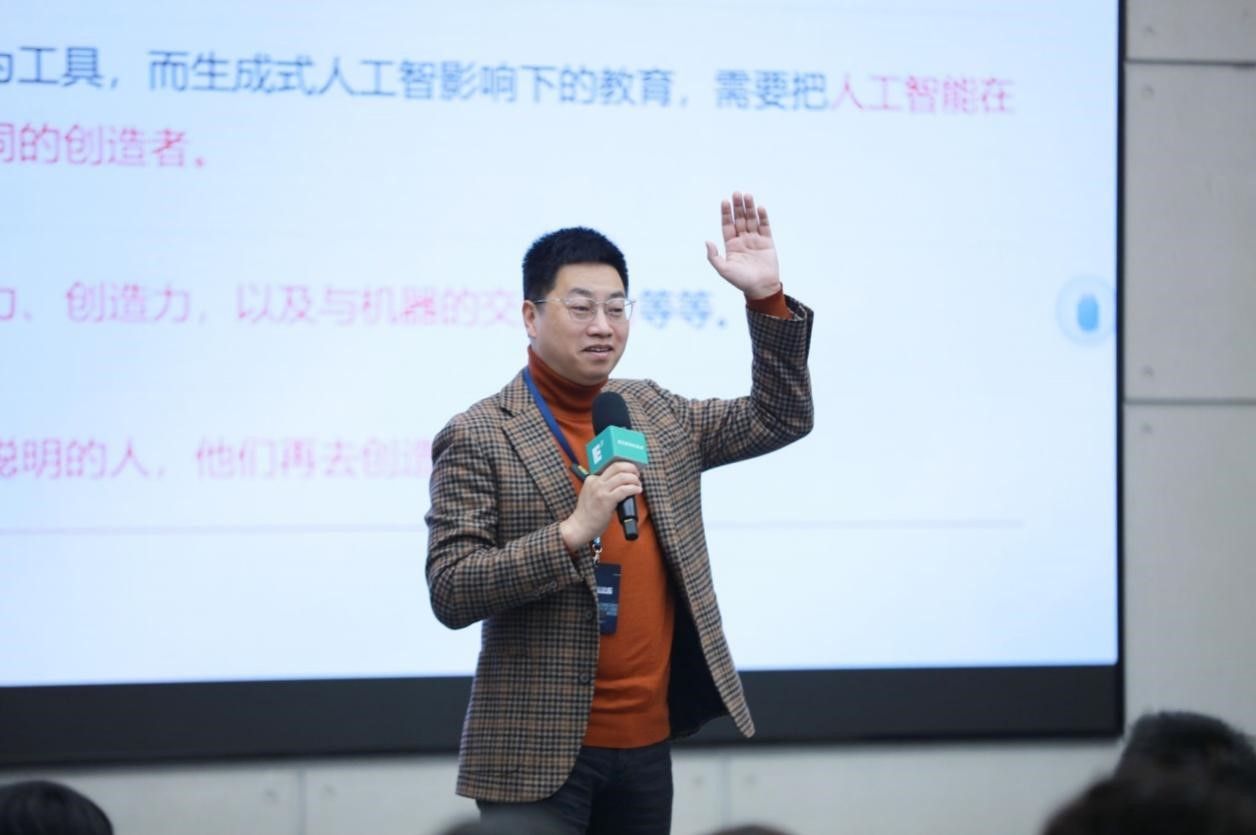
"Turn all discipline knowledge points into AI prompt words, so that students can use them repeatedly on a large scale and even turn them into the instinct."
The arrival of the AI era has brought great challenges to teachers' teaching. How do we integrate AI into daily teaching? Zhang Zhi, Associate Professor of Wuhan Institute of Technology and Founder of Qiuye PPT, began with this core question and shared his thoughts on how AI can effectively empower university teachers' teaching innovation.
When people talk about the AIGC and multimodal method, it means that the content can be presented in many forms. In primary and secondary schools, AI helps students open their visual thinking and transform poetry into pictures, songs, and four-grid comics or stories, thus fully stimulating their creativity and improving their language expression ability. In the university, Zhang Zhi taught courses on consumer behavior and new media operation and thus demonstrated how to use AI to quickly create stories and deeply understand the characters in them, how to use AI to more efficiently explain abstract knowledge such as the Big Five Personality Traits and help students strengthen their understanding through practice, and how to write AI prompt words and quickly generate product content with templates to improve copywriting skills.
"The new realm of teaching is to condense all discipline knowledge into AI prompt words, so that students can use them extensively and repeatedly in class until they become the instinct," said Zhang Zhi. He believes that it is crucial to cultivate students' ability to talk with machines. With the help of AI technology, students should use correct theory to analyze problems and learn to solve practical problems. At the same time, teachers should actively embrace AI technology and reorganize teaching design with AI to improve teaching effect and bring more innovation possibilities for course teaching.
Speech 4: Influence and Challenge of AI Technology on Image Art Creation
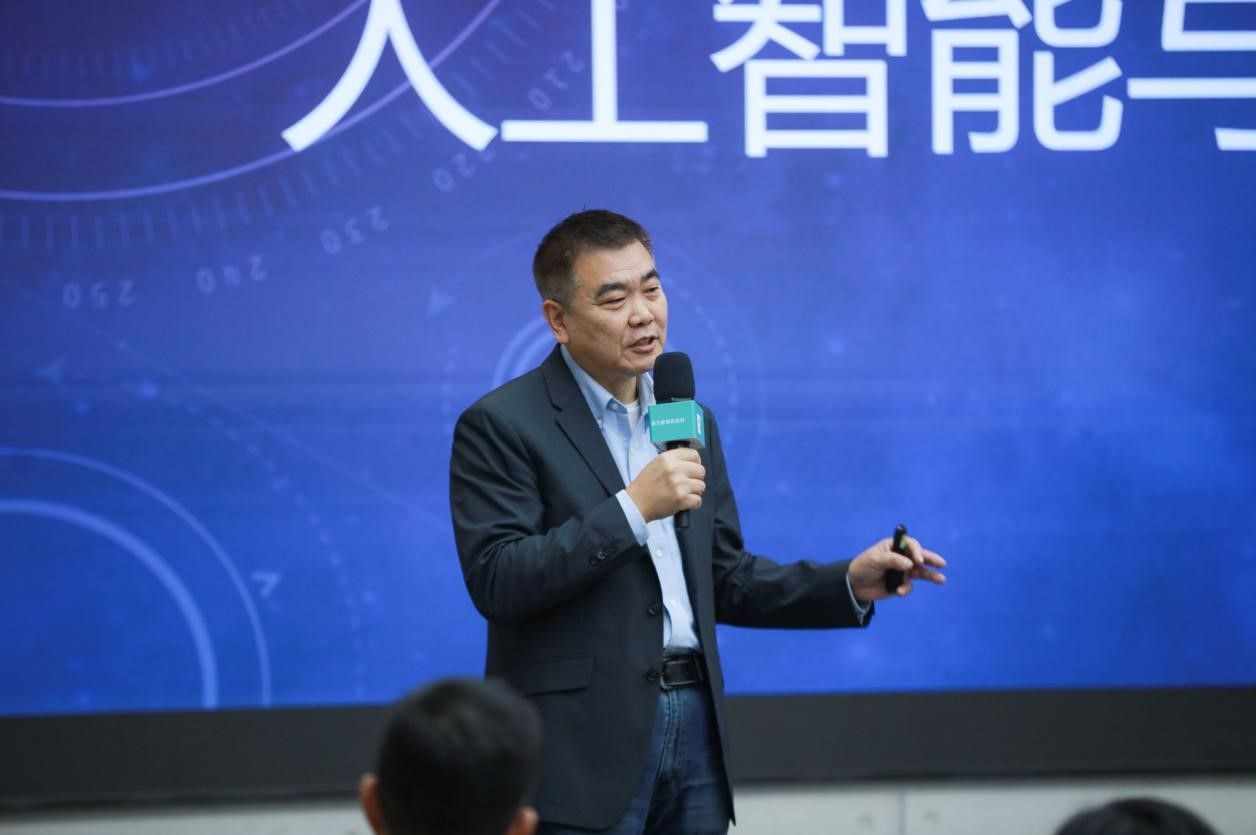
"There will be man-computer coexistence and integration, and the future film and television production will adopt a hybrid way."
"The three core pillars of AI are computing power, algorithm and data. From a single rule-based algorithm to today's large models that simulate the principles of human brain and nerves, AI technology continues to advance. In the future, the artificial general intelligence (AGI) will surpass AI based on the human intelligence in a single field or non-complex fields," said Liu Qian, Executive Vice Dean of the School of Digital Media of Beijing Film Academy and Distinguished Professor at Xi'an Eurasia University. He explained the development and future trend of AI. In the future, human beings and computers will coexist peacefully and symbiotically, but human-computer integration does not mean that human beings will be completely replaced by computers. Human beings and computers will give full play to their advantages in their respective areas of expertise.
We have gone from shooting and recording to computer production, and then to multimodal generation and immersive experience. With the development of digital technology and AI, the production of digital images is undergoing profound changes. "In the field of visual arts, human-computer coexistence will bring more abundant expression methods and means to image creation," said Liu Qian.
"We still need to maintain our enthusiasm and pursuit of art and creativity, and let machines become tools for our creation. In film and television creation, tools such as Sora should be selected according to needs to ensure the artistry, expression and narrative of the work. In the future, film and television production will adopt a hybrid way, including both actual shooting and AI application," said Liu Qian.
Speech 5: Current Situation and Prospect of AI + Industrial Application
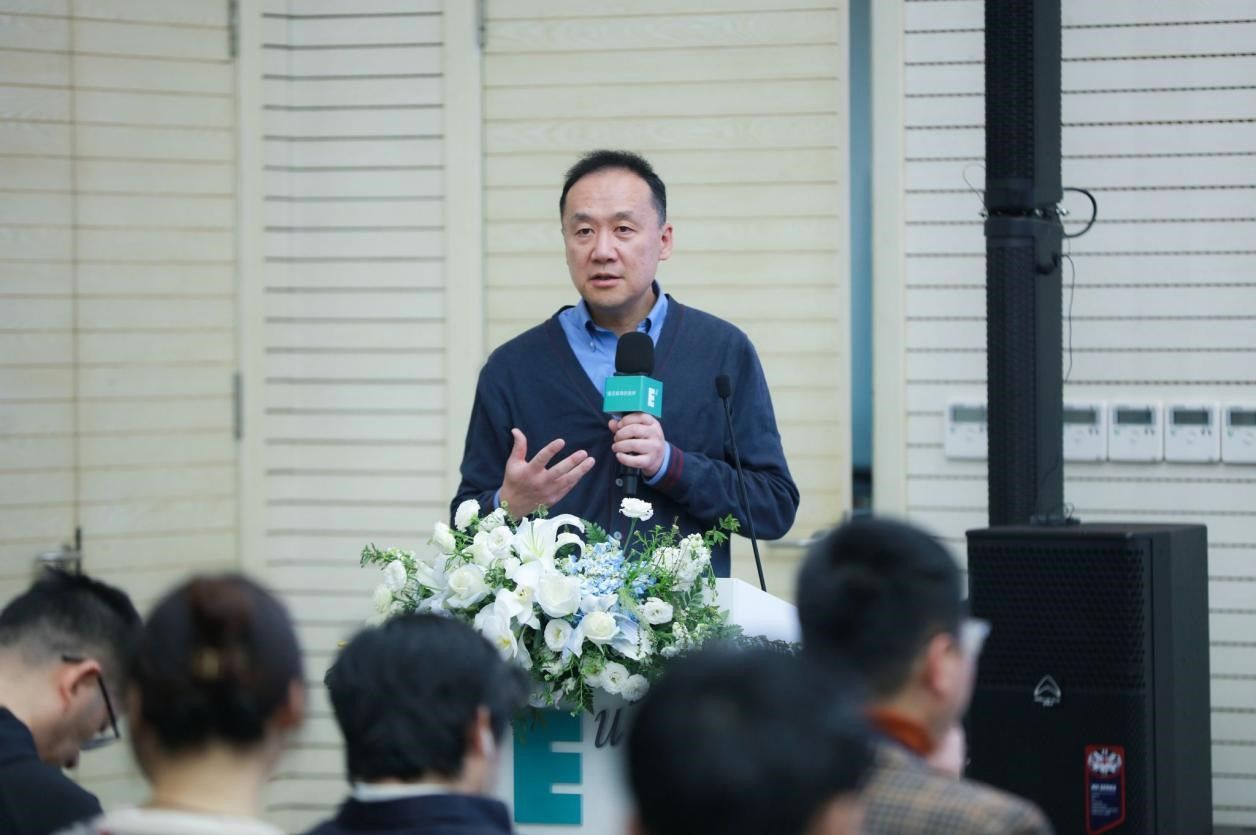
"There will be a large number of exclusive models in every industry, and all flowers will bloom together."
Focusing on the application status and future development of AI + industry, Zhou Yuming, Chairman of Shanghai Qiandao Information Technology Co., Ltd., gave a comprehensive and profound presentation. The changes brought about by AI in various industries will be a topic for human beings to explore deeply in the future.
At present, AI is exploding. Zhou Yuming believes that the emergence of intelligence is the key to this sudden explosion. "When the computing power reaches a critical point, the intelligent level of algorithm will increase exponentially," said Zhou Yuming. The release of ChatGPT is a major milestone in AI technology, and the emergence of models such as Sora has pushed AI applications to a new level. At present, among overseas large model platforms, Google Gemini's multimodal interaction has gradually matured; videos generated by Sora have reached the movie level with clear and detailed pictures; Claude 3 shows superior reasoning ability in data-level evaluation, and innovative applications of AI Agent, Stable Diffusion 3 and other models have reached a new stage.
He also shared his AI application practices in the fields of marketing e-commerce, biomedicine and vocational education, including using large model capabilities to generate marketing copywriting, pictures and videos, using AI to provide personalized drug recommendations, assist biological drug R&D and empower hospital diagnosis, and improving livestreaming skills and teaching quality for normal university students through livestreaming training simulation system.
As for the future application prospect of AI + industry, Zhou Yuming believes that the demand for industrial applications based on exclusive models will increase significantly, and all kinds of industry-specific models will bloom together; The combination of multiple traditional machine learning algorithms and LLM will enable the real implementation of AI industrial applications; The breakthroughs in multimodal models will give birth to a wealth of industrial application scenarios. XR+AI technology continues to mature. In the future, it is no longer distant for the effective closed loop of metaverse industrial application development. We expect that it can bring more surprises and possibilities to human beings.
Speech 6: AIGC Exploration and Practice in Talent Cultivation
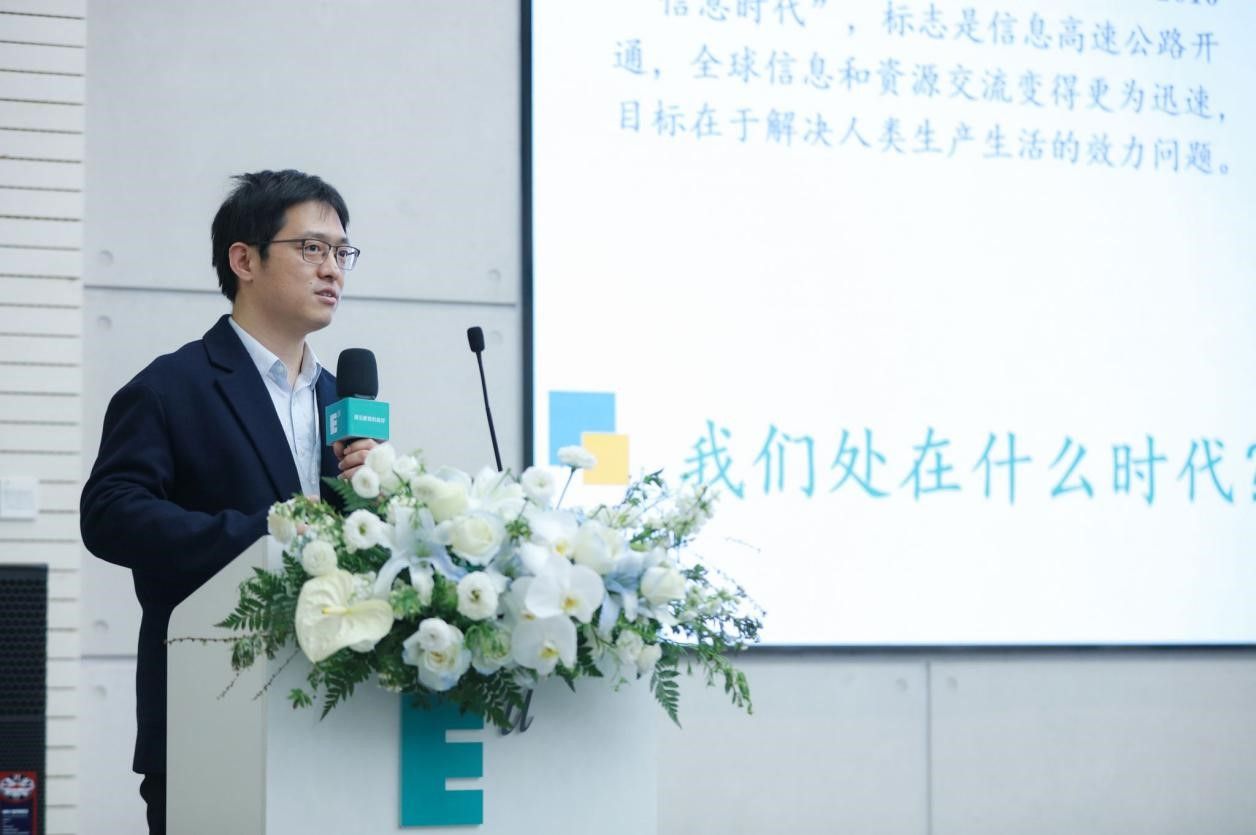
"We need to really cultivate talents capable of meeting any challenge and excelling in any job."
Facing the strong impact of the AIGC and other new technologies, what responses and changes should be made in cultivating applied talents? Who will be the subject of teaching? Hu Hongfei, a teacher from the School of Information Engineering of Xi'an Eurasia University, and the virtual digital human of the School of Culture & Media jointly shared their practice and thinking.
From the perspective of engineering education, Hu Hongfei believes that although AI is becoming more and more excellent in coding, the essence of software engineering lies in addressing customers' real needs. In the era of AIGC, AI tools should serve three subjects in higher education: schools, teachers and students. Schools need to reimagine the framework of education, including better teaching subject, content worth learning, better educational carrier and personalized learning subject. The School of Information Engineering will focus on the interdisciplinary integration, create a complete AI talent cultivation path, and work closely with the industry to jointly cultivate AI talents.
At present, the School of Information Engineering is carrying out the construction of AI major from such aspects as student cultivation and support, scientific research and industrial cooperation, and teacher development. In terms of student cultivation, in addition to offering AI elective courses, it also provides personalized resource recommendation and adaptation course packages and cooperates with many enterprises to promote practical application. In terms of academic research, it has established an AI Innovation Research Center and produced a series of solutions based on AI technology. In terms of teacher development, AI tools are used to realize the transformation from experience-driven teaching to data-driven teaching, which improves the convenience and creativity of teaching. The ultimate goal is to cultivate talents capable of meeting any challenge and excelling in any job.
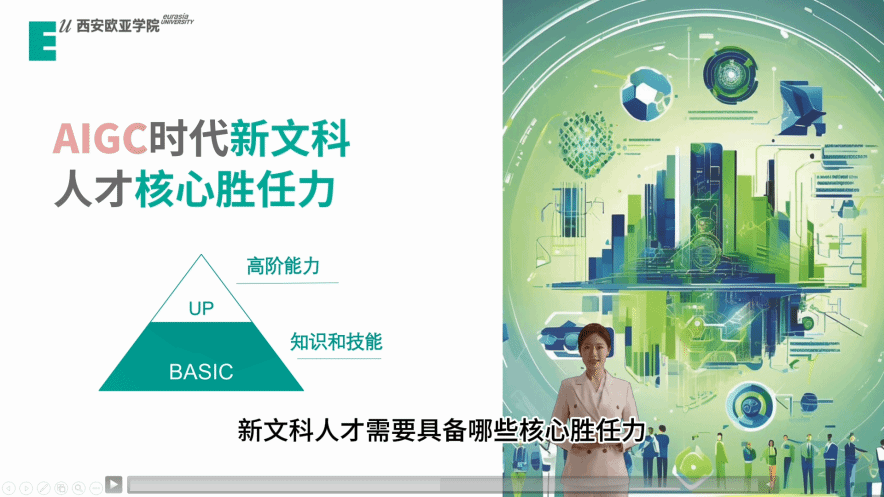
The digital human of the School of Culture & Media believes that the AI-generated technology can promote the integration of liberal arts and science and technology, help break down traditional disciplinary barriers, and facilitate the development of interdisciplinary research and education models. It can also produce a large number of teaching materials, such as reappearance of simulated historical events and creative continuation of literature works, which greatly enriches the teaching resources and contents of liberal arts education. Correspondingly, teachers need to change from knowledge transmitters to learning facilitators and problem solvers, adapt to new environments, and engage in major development and skills updating.
In the era of AI, new liberal arts talents need to have critical thinking, good communication and collaboration skills, while improving innovation ability and aesthetic appreciation. The primary task of new liberal arts talent cultivation is to optimize and upgrade the layout of disciplines and majors. Application-oriented undergraduate universities should adopt the strategy of discipline clustering, use multidisciplinary advantages to promote the cross-integration of AI-generated fields, and build a complementary and coordinated discipline system. Secondly, we should break the traditional discipline boundaries for a new liberal arts course system, establish a community of general education courses, integrate interdisciplinary knowledge and digital technology courses, and adopt diversified teaching strategies to help students adapt to technological changes and improve their digital ability.
Speech 7: Rethinking the Opportunities and Challenges of Design Education in AI Era
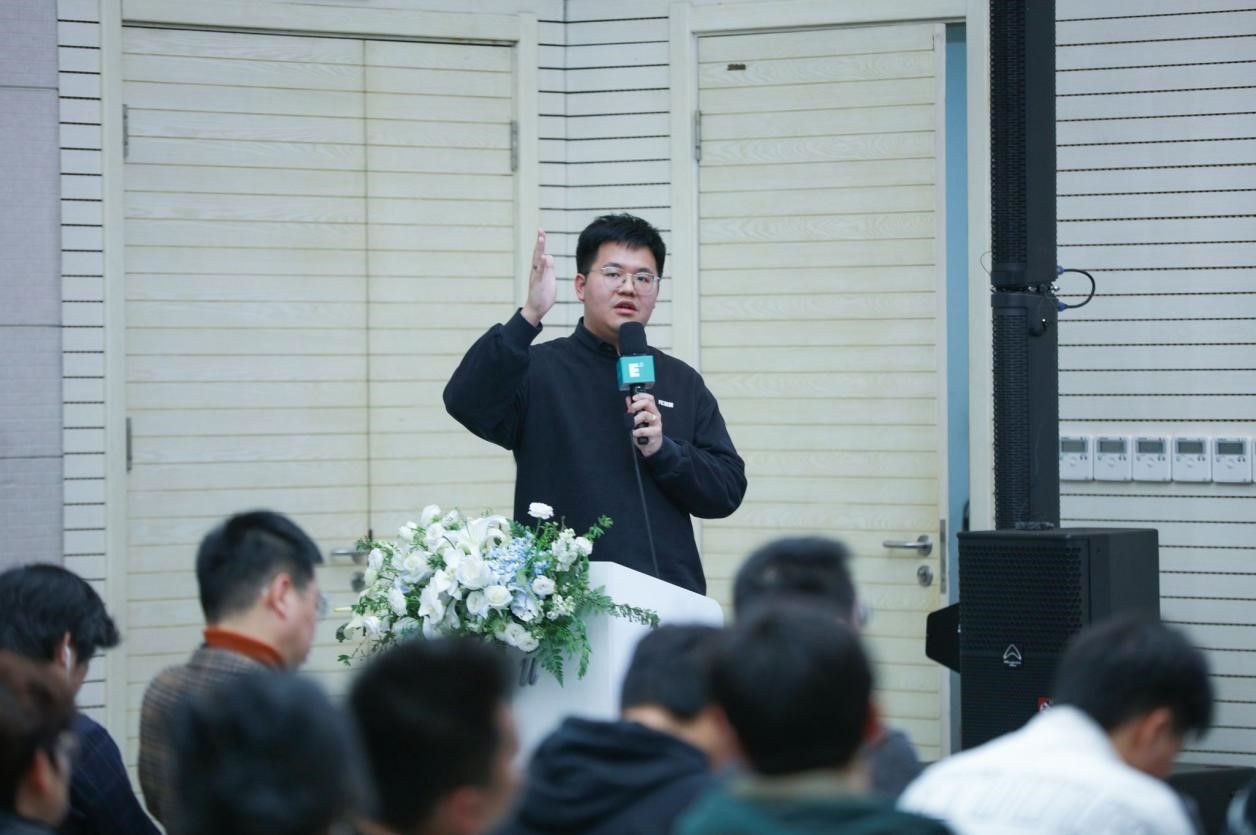
"People-oriented and humanistic design is our pursuit."
Examining the ingenious correlation between the AIGC technology and design education from a major perspective of design is a new perspective offered by Wang Quankai, a teacher of the Visual Communication Design major of Xi'an Eurasia University's EAaD School.
In daily design education, the EAaD School helps students understand and apply new technologies through courses such as Design Practice Week, so that they can better adapt to the changing design environment. During the Design Practice Week in June 2023, Wang Quankai led students to carry out "virtual brand program planning supported by AIGC technology". "I am always committed to serving as a bridge between students and society in this course," said Wang Quankai. The course is designed with four goals: understanding AIGC, mastering its application, understanding its strengths and weaknesses, and thinking about its impact on future employment. These four questions constitute the syllabus of this course. Through practical experience, students can think deeply and feel the charm of AI.
Students use AI to produce research text for brand programs, iterate visual elements, integrate programs and expand the possibilities of vision and form. "AI not only improves efficiency, but also provides students with more design inspiration and possibilities," said Wang Quankai. He was responsible for guidance and correction. In the end, students complete higher-quality design works in a shorter period of time and have more time to explore more interesting design extensions.
Liu Cixin once said that technical breakthroughs are not enough to create great works, and true aesthetic judgment is the key. Wang Quankai believes that AI can serve as an academic assistant to help designers focus on outputting ideas, but it cannot completely replace the designers. True philosophy and art are highly derived from human mistakes and contingency. "The ultimate object of design is people. Only by putting people first and caring for human nature can we create truly valuable design works," said Wang Quankai.
Speech 8: Exploration of AI's Ability and Application in Education and Teaching
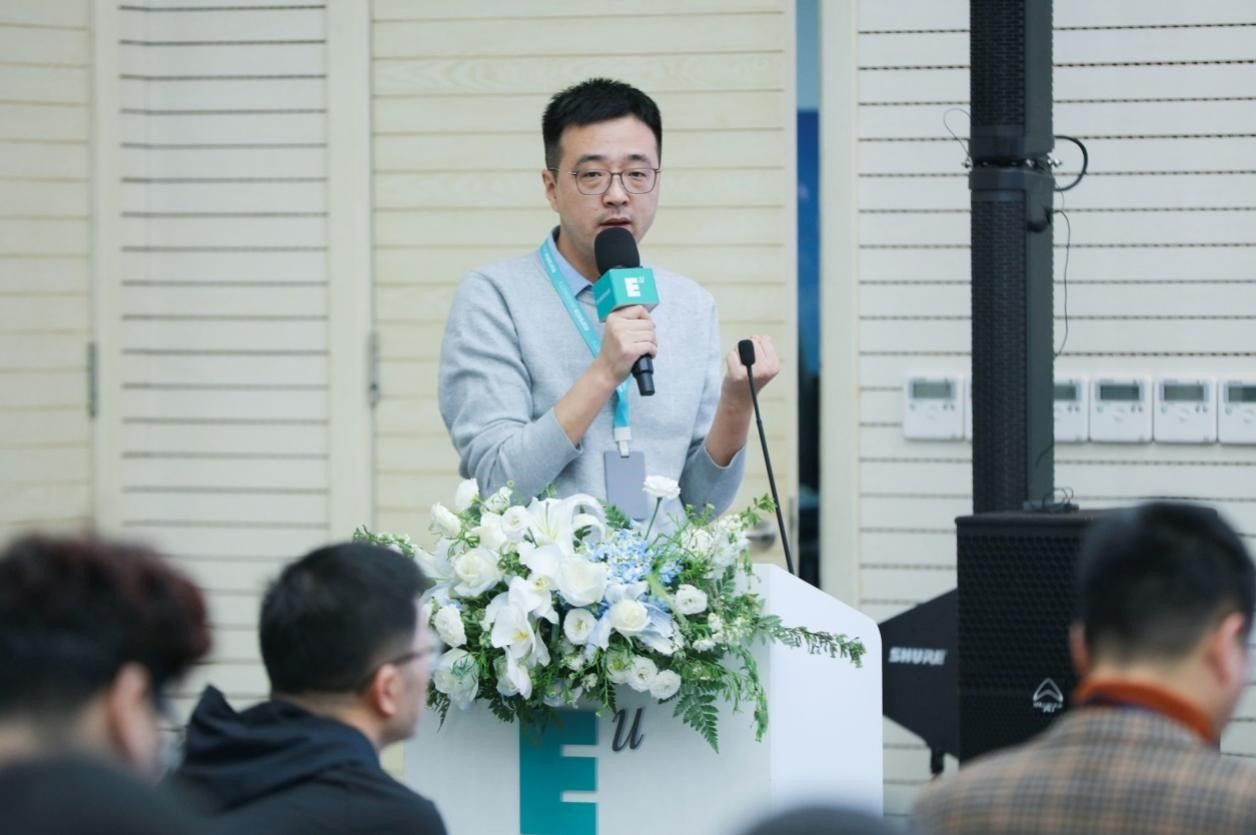
"AI is now at our feet."
"What would it look like if the beautiful campus environment of Xi'an Eurasia University was placed in another dimension, such as comics or the future world? AI gave me the answer. Although everyone imagines the future world differently, AI does inject more imagination and creativity into my works," said Li Shudong, Data Engineer of the Graphic Information Center of Xi'an Eurasia University. He shared his creative experience in AIGC.
With the emergence of AI tools such as ChatGPT, he chose to actively embrace changes and began to explore the application of AI in education and teaching. In a tweet about the beginning of school, it trained the AI with only ten minutes of sound materials and got a realistic sound model. He and his partners have set up an AI group to explore how AI can serve Xi'an Eurasia University's "digital transformation" strategy. They often brainstorm about how AI can provide better services for teachers and students.
Li Shudong showed the exploration and thinking of the Graphic Information Center on the application of AI in the digital transformation of Xi'an Eurasia University. He planned to carry out work from four aspects: AI-assisted teaching and learning, AI training and literacy improvement, AI course development support, and AI campus service knowledge base construction.
These include: Introduce lesson preparation assistant and virtual teaching assistant to free teachers from tedious work and make them focus more on talent cultivation; share AI dynamics through we-media platforms and organize regular AI knowledge training to enhance teachers' and students' awareness of and interest in AI; collaborate with secondary schools to design AI courses that allow students to participate in practical programs, master AI skills and broaden the field of employment; integrate campus resources, build an AI service knowledge base, improve information retrieval efficiency, provide convenient learning and life services for teachers and students, and promote the digital transformation of campus management.
Speech 9: AIGC and Teaching Ability—Three Hypotheses of Pedagogy in AlGC Era: AlGCdology?
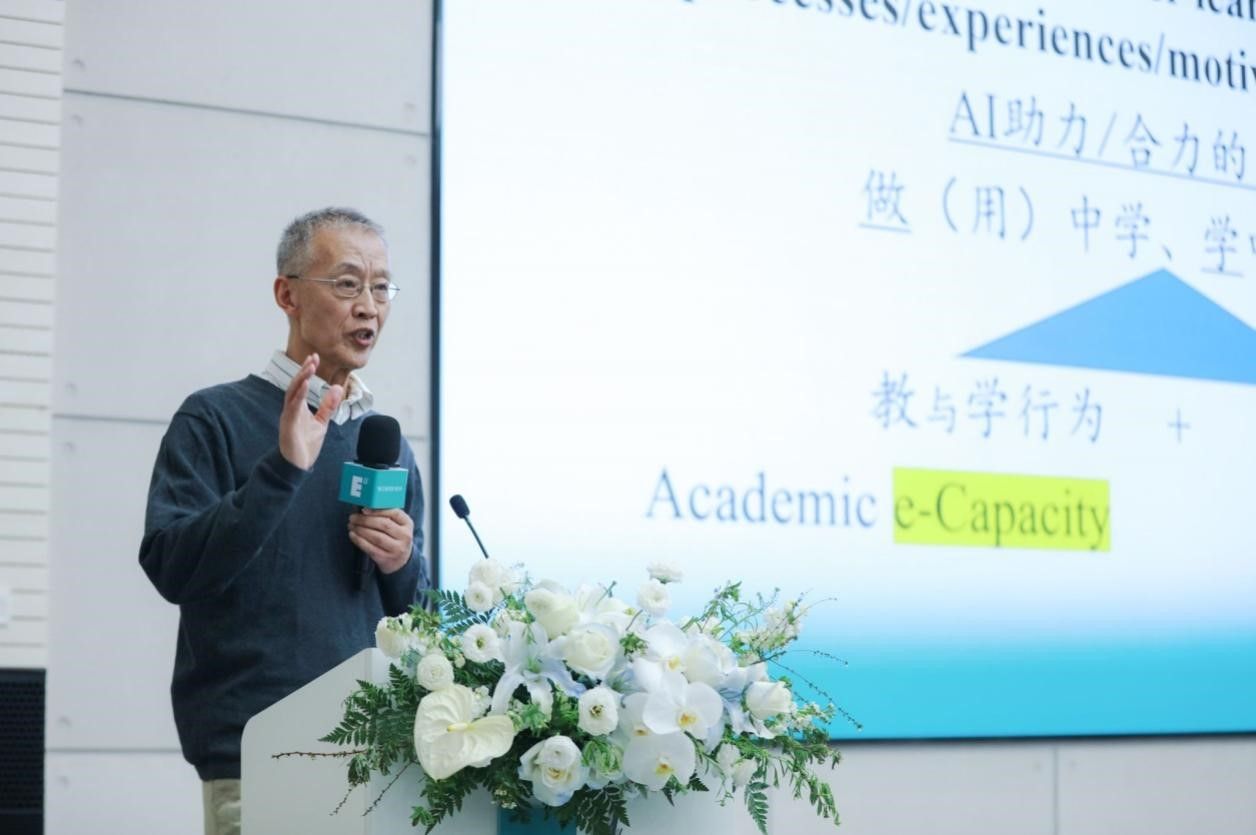
"Using generative AI in teaching design is an 'advanced extension' of educational technology."
Professor Sun Jianrong, Vice President of Xi'an Eurasia University, focused on the correlation between AIGC and teaching ability in higher education. From the perspective of higher education teaching and based on the premise that AI can help higher education, he put forward three hypotheses, namely AIGC-induced learning motivation, AIGC-assisted learning experience and AIGC-assisted learning outcome, and then explored the possible far-reaching impact of AI on students' learning and teachers' teaching.
Firstly, the attractiveness of technology to students stems from its instrumental value. "Students always ask what can this tool do for them. In higher education, the value of a tool lies in what it can bring to students, which is also the biggest motivation for students to use tools," said Sun Jianrong. Therefore, when setting the course and planning teaching, teachers should think deeply about what value AI can bring to students.
Secondly, the goal of higher education is not only the academic qualifications pursued by students, but also the value that four years of college experience brings to students. "With its unique capabilities and information, AI provides students with a new learning experience. Students will naturally think about how they are different from others with or without AI tools. This is a profound enlightenment for teachers: we should not only learn to use AI, but also think about how to maximize its effectiveness in teaching to train students' academic ability," said Sun Jianrong.
Thirdly, higher education must pay attention to the effectiveness and results of teaching. AI has shown significant advantages in improving efficiency and output. Teachers need to rethink the concept of teaching design and how to use AI technology to assist the whole teaching process.
Sun Jianrong also discussed how the concept of reverse engineering could be integrated with teaching in colleges. Educators should consider how to innovate in curriculum concepts, design, implementation, and evaluation within an AI context, particularly in applications involving writing and ideological and political education courses. In writing courses, he proposed reverse writing thinking, hoping to combine Xi'an Eurasia University's writing with AI. This would focus on the writing process and train the use of prompt language. In terms of ideological and political education, he suggested reorganizing student participation and embedding AI support into their learning lives.
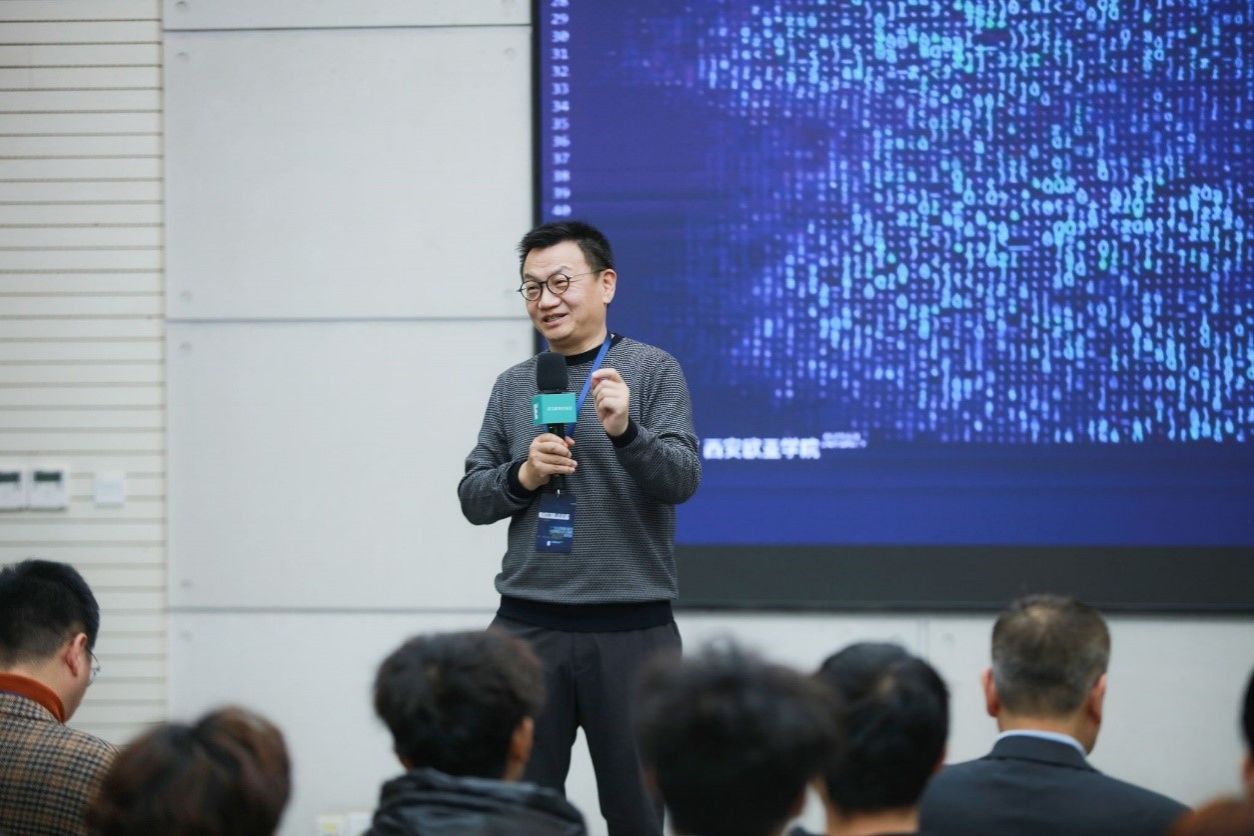
In his concluding remarks, Professor Hu Jianbo, Chairman of Xi'an Eurasia University, stated that in the face of the opportunities and challenges of the AI era, the university would actively embrace change. Utilizing current AI technology, the university plans to explore restructuring course content, transforming teaching methods, and revising applied talent training schemes. These actions are aimed at making courses more aligned with the demands of modern society and student interests, improving teaching efficiency and student learning outcomes, developing students' abilities to solve real-world problems, and enhancing their competitiveness in the job market. Furthermore, Xi'an Eurasia University's advantage lies in its emphasis on innovation and long-termism. The university will maintain cooperation with the government, businesses, and industry associations, using AI technology to promote the reform and development of vocational education, offer customized knowledge services and lifelong learning support for enterprises, and closely link education with the actual demands of society.
(Contributed by Li Xiaofei and Du Linqi from the Brand Communication Department; Photo by EAaD School)



